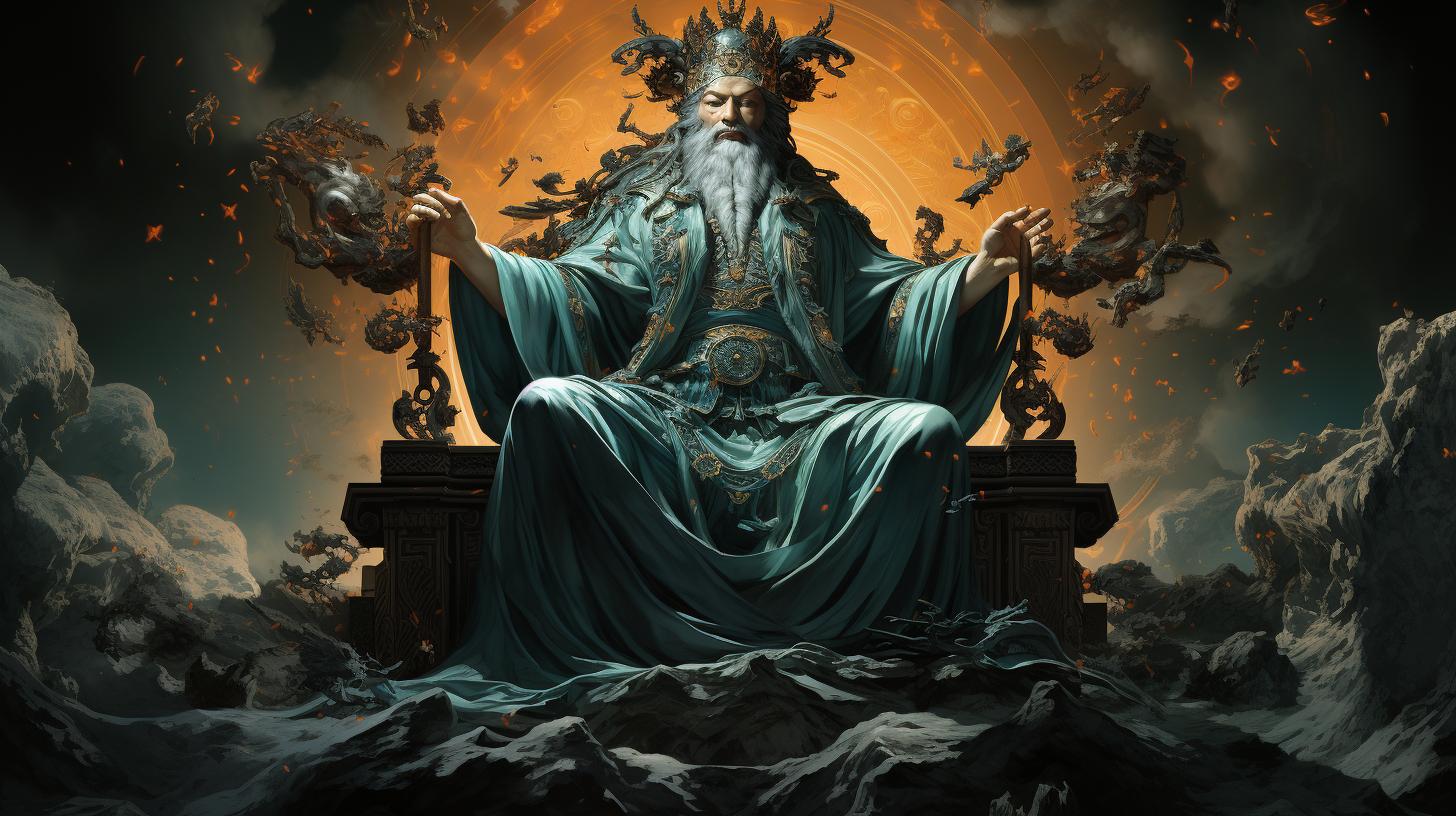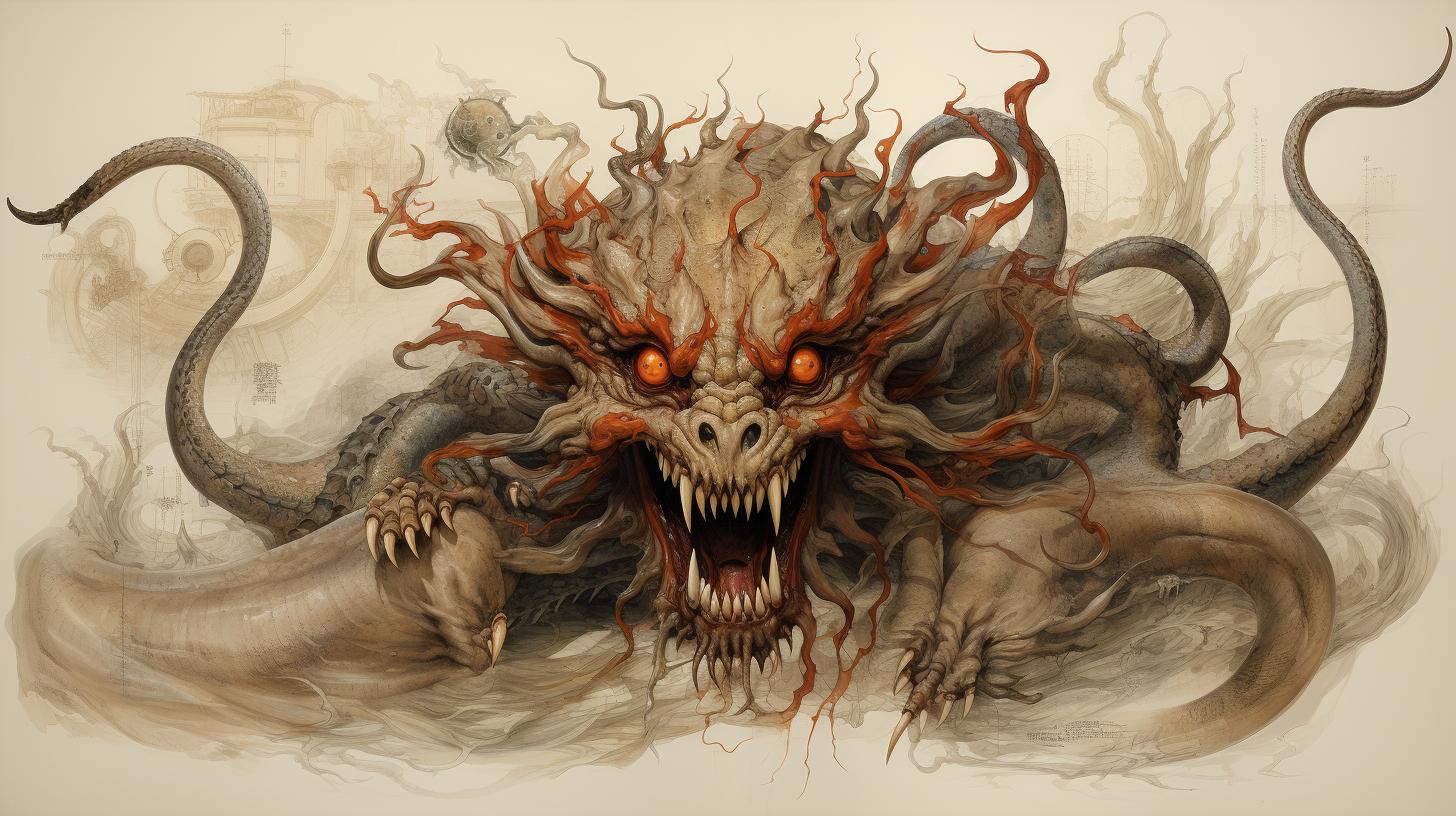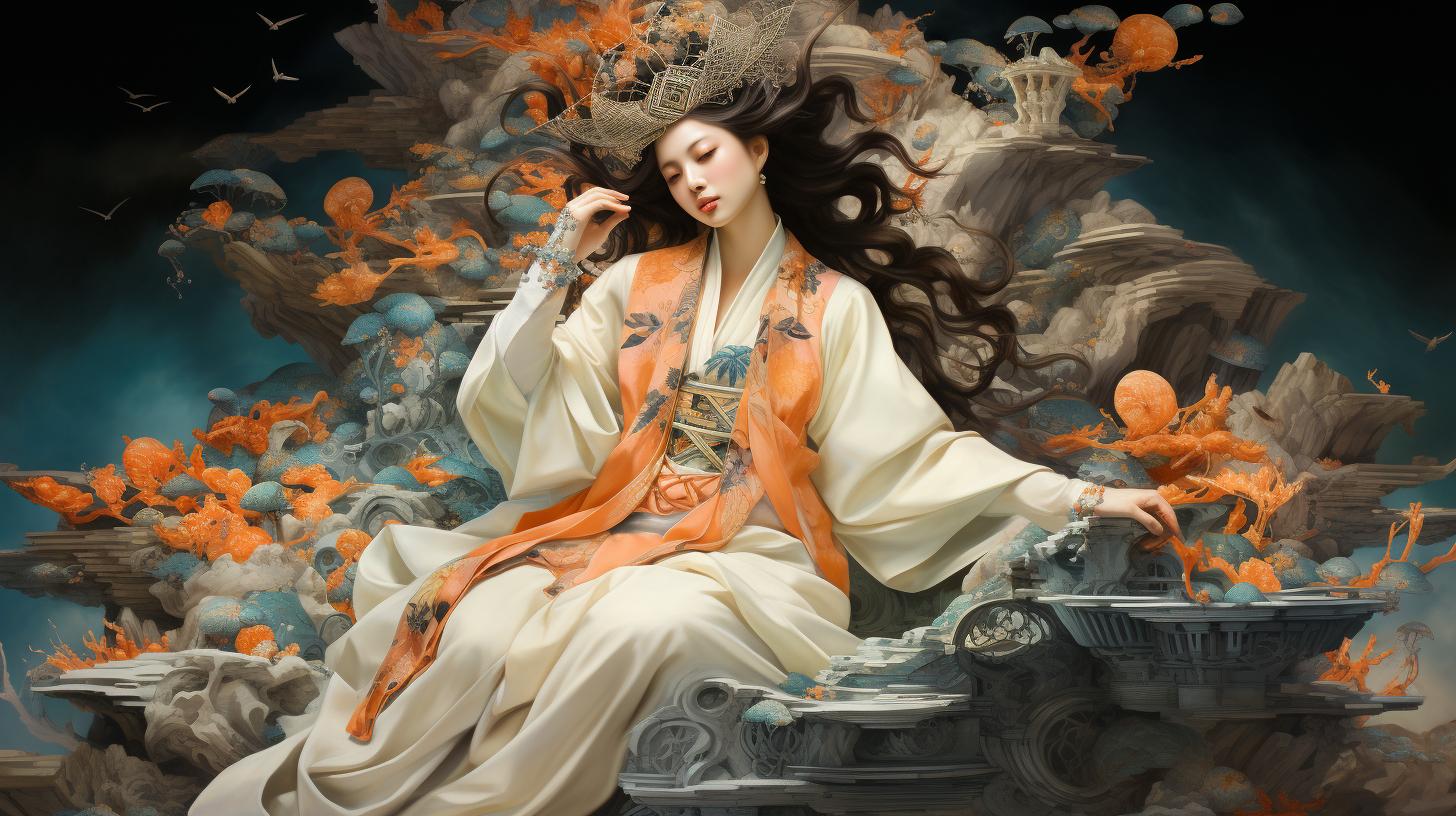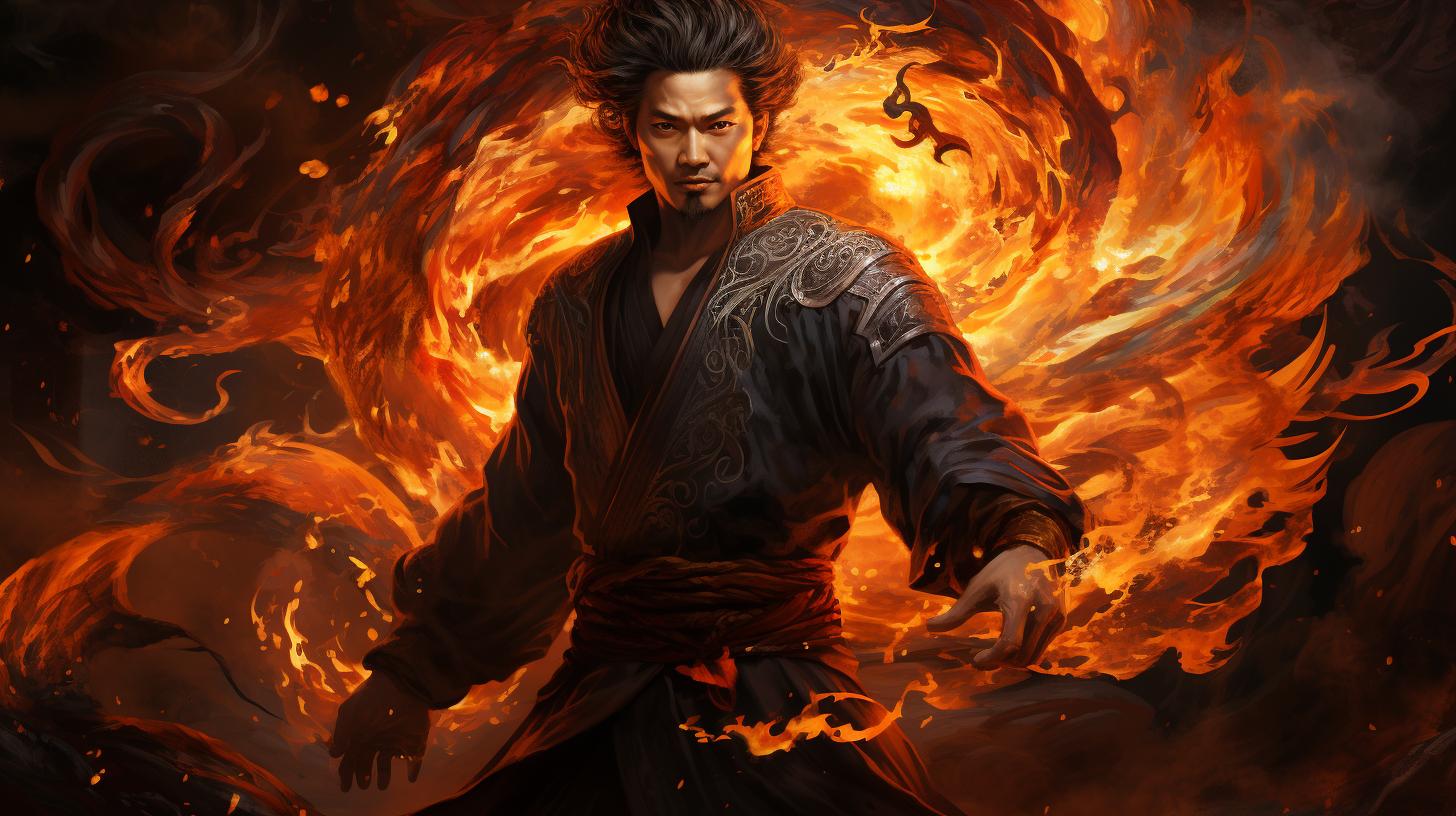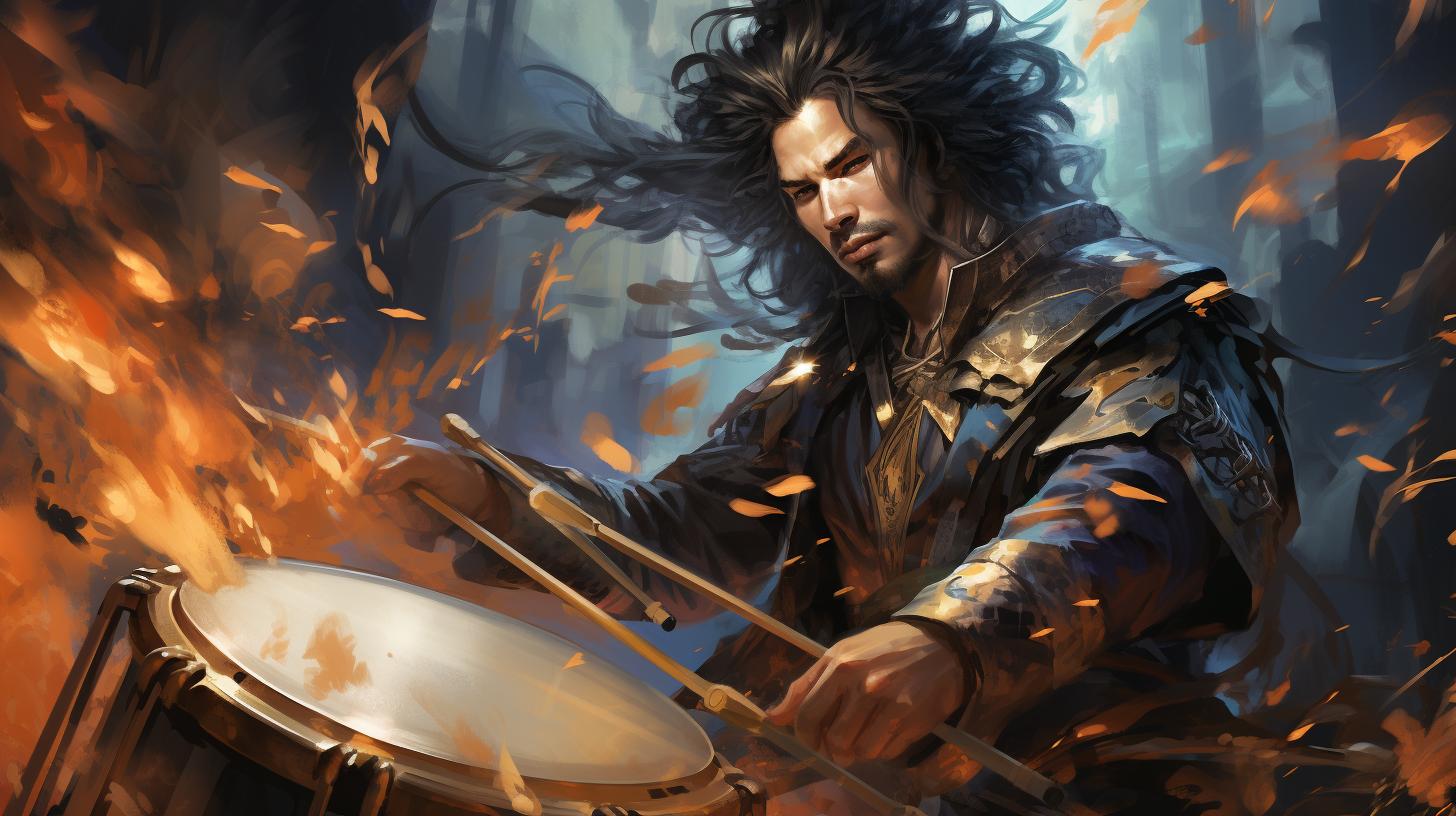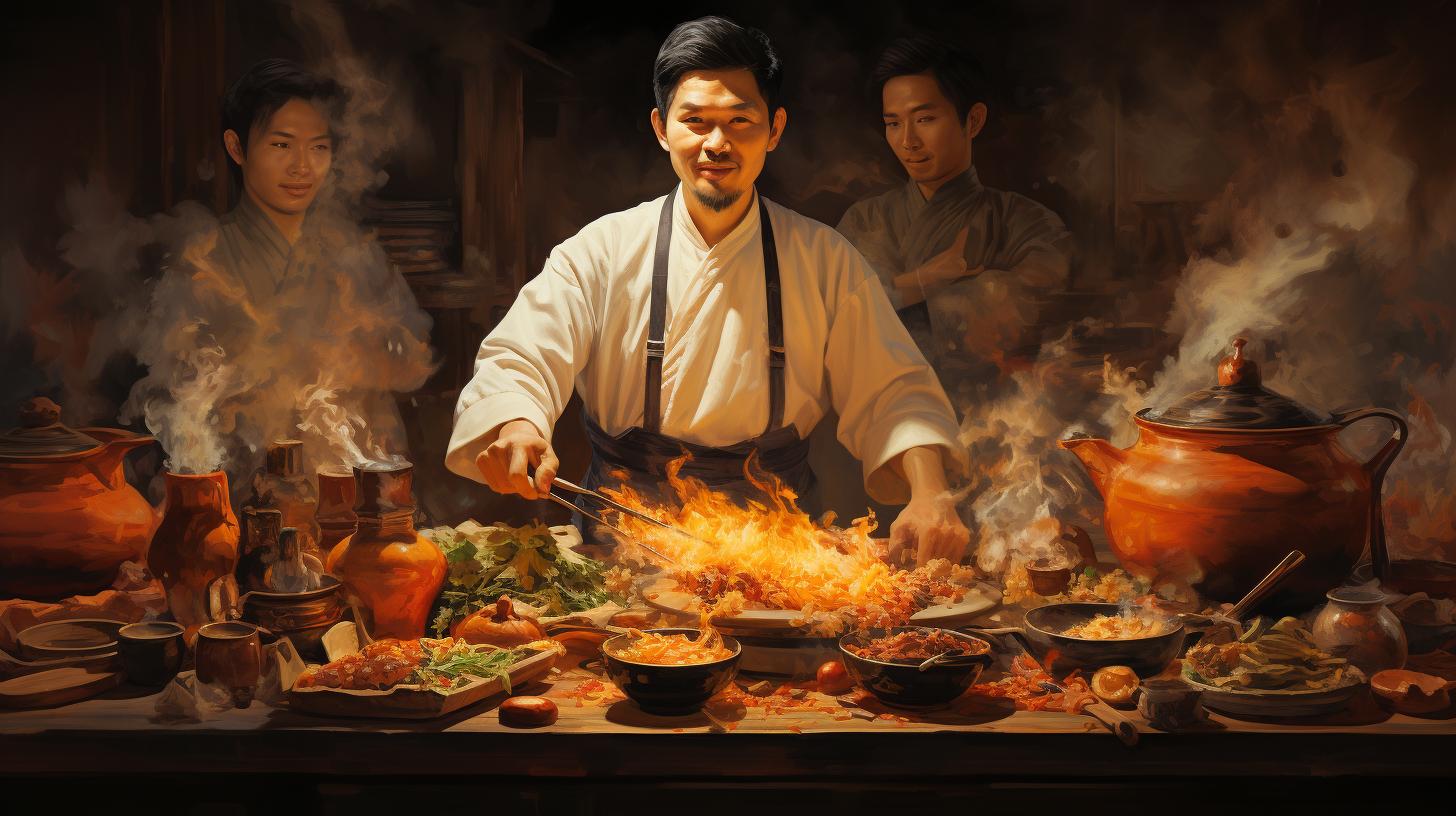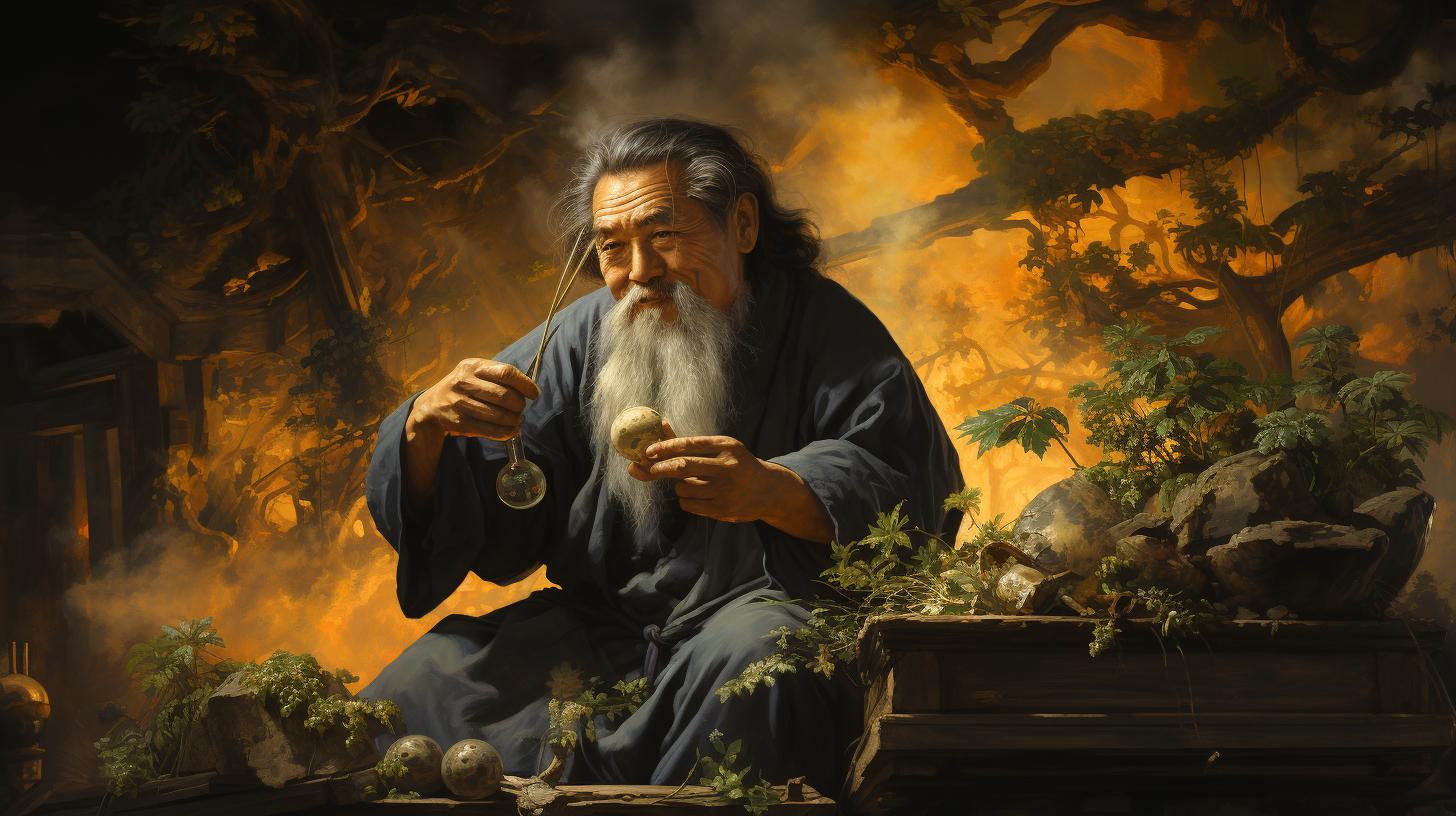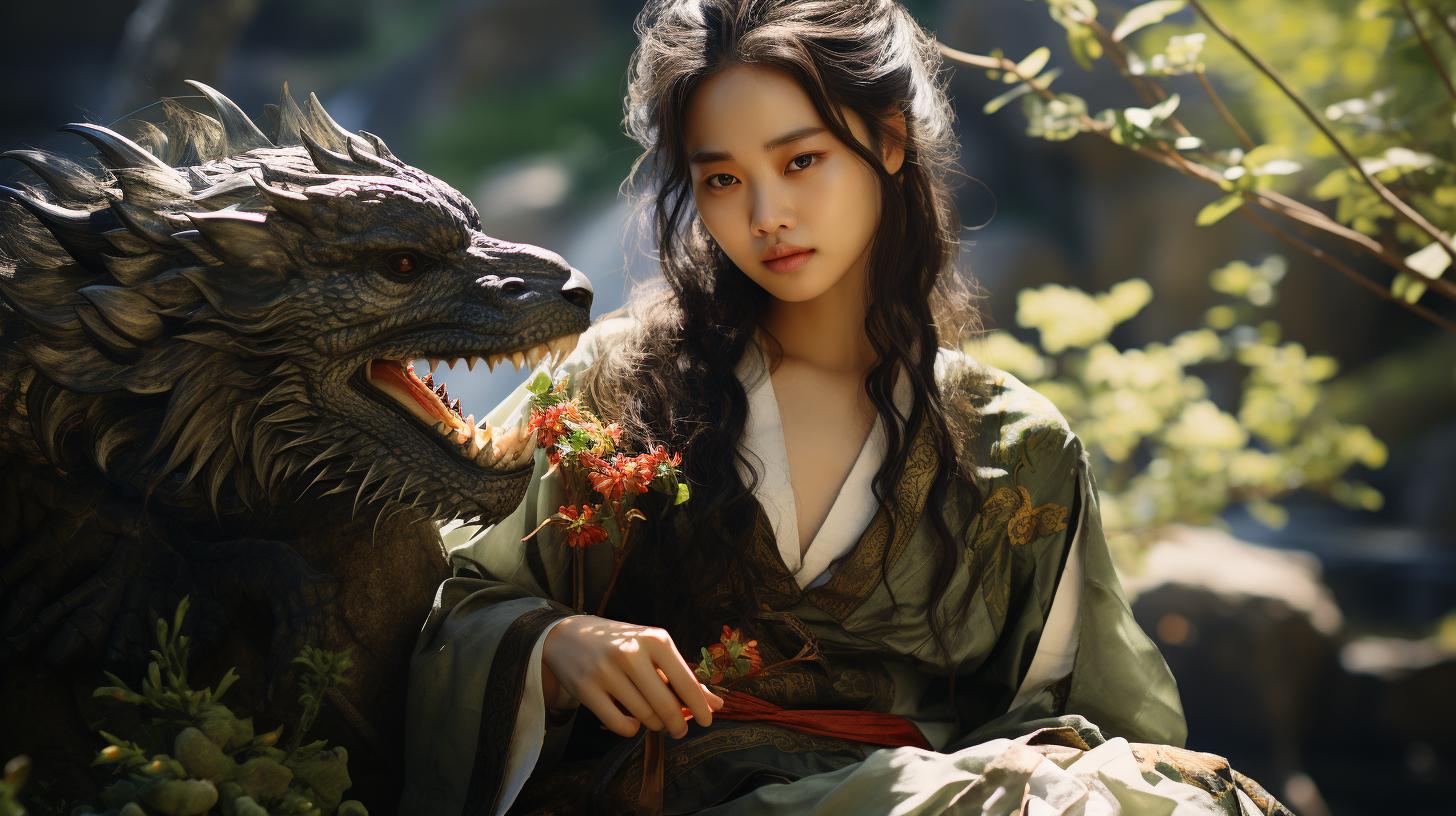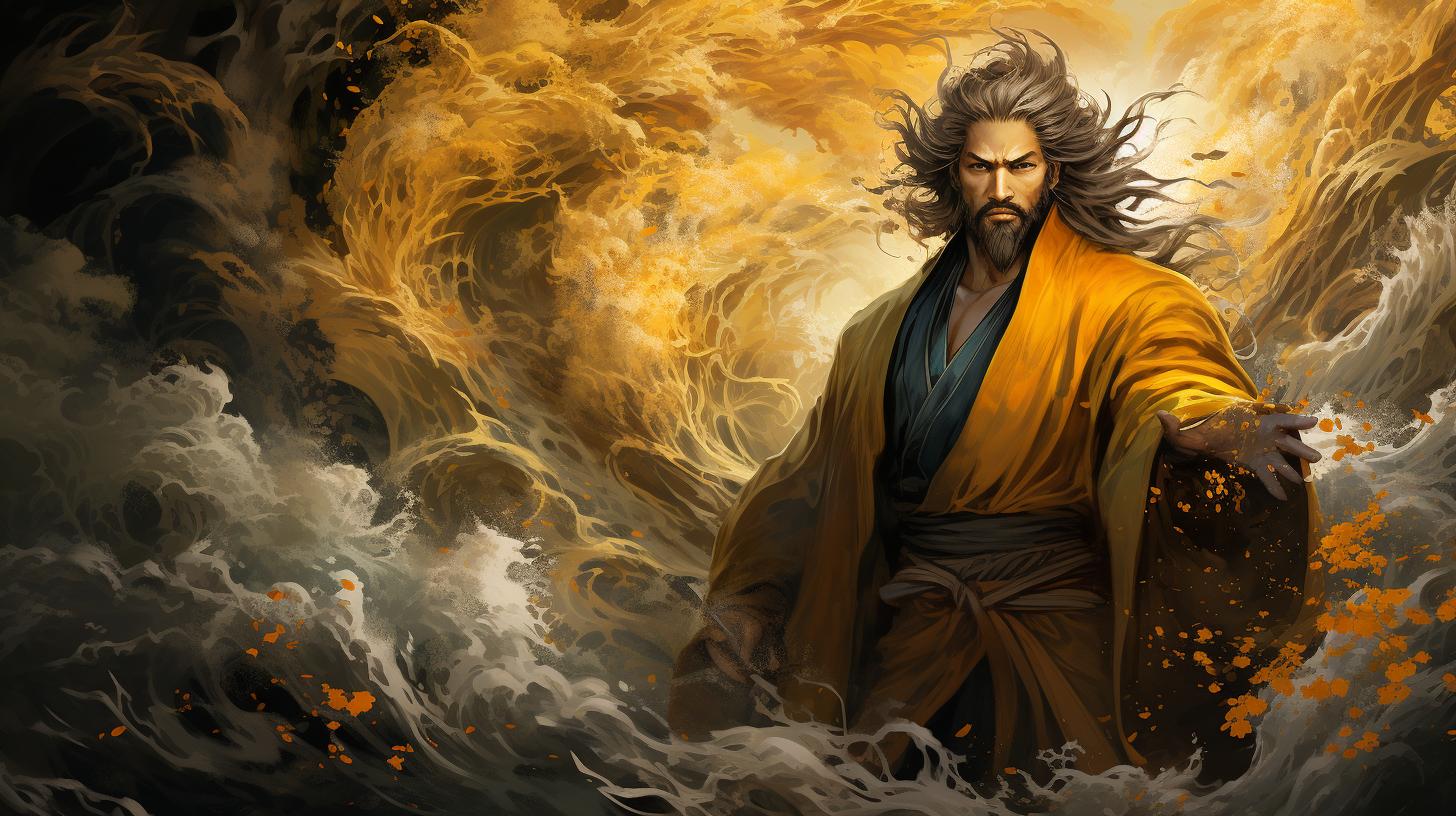Who Was the Jade Emperor in Chinese Mythology: Unveiling the Divine Ruler’s Role and Importance
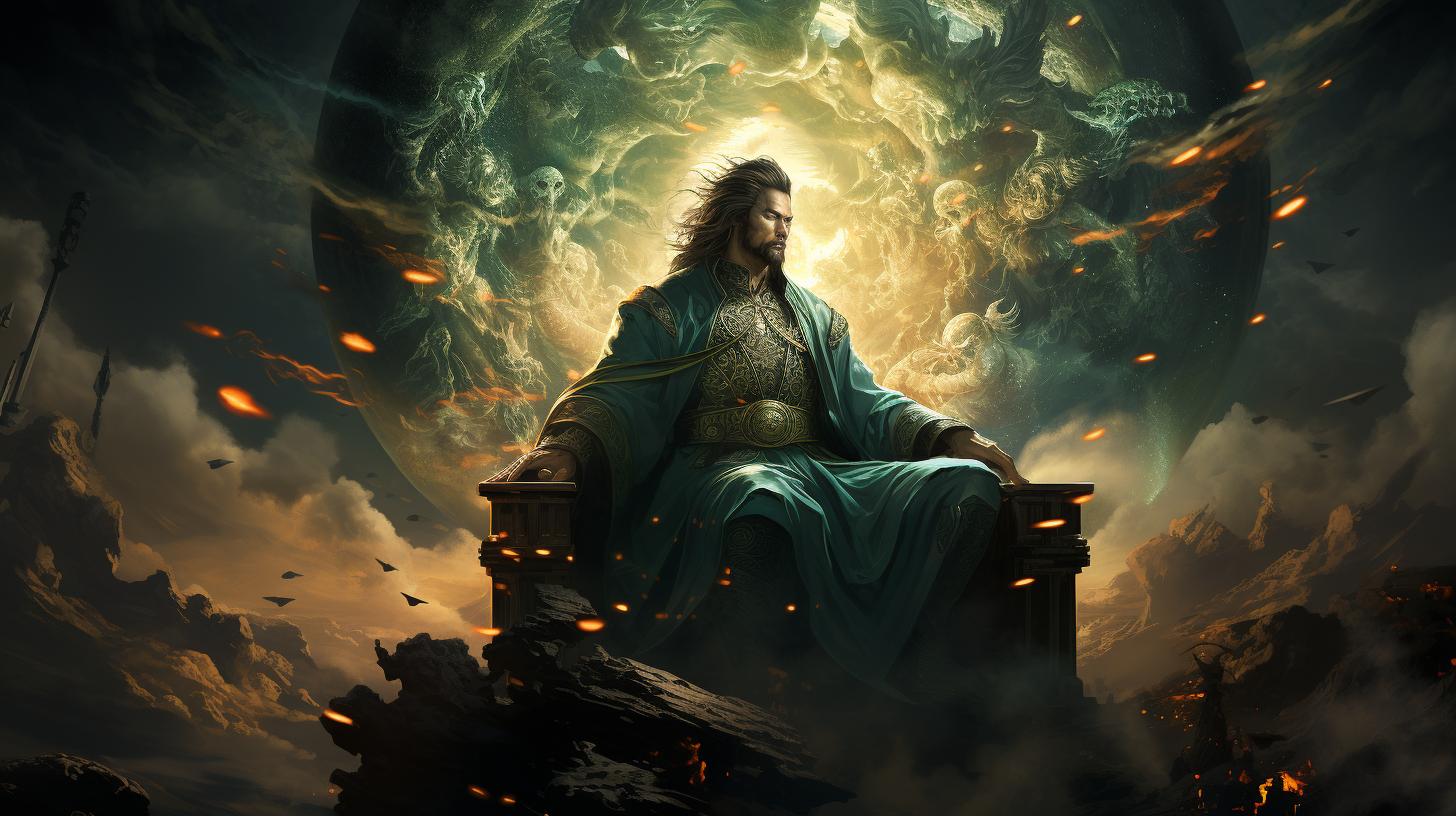
The Jade Emperor holds a significant role in Chinese mythology, serving as the divine ruler and overseeing the heavens, earth, and the underworld. Within the Heavenly Court, a structured hierarchy exists, featuring important deities such as the Three Pure Ones.
Chinese folk religion emphasizes worship and rituals associated with the Jade Emperor, including the observance of festivals and celebrations. Legends and mythological tales often revolve around the Jade Emperor, and his cultural significance is deeply rooted in Chinese society, influencing traditions, beliefs, and even historical dynasties.
Jade Emperor’s Heavenly Court: A Divine Hierarchy
The Jade Emperor’s Heavenly Court holds a prominent position in Chinese mythology, representing the divine hierarchy governing the cosmos. This celestial realm is structured and organized with a fascinating array of important deities and gods, each with their specific roles and responsibilities.
Structure and Organization of the Heavenly Court
The Heavenly Court is a complex system with the Jade Emperor at its pinnacle. Below him, various ranks and positions exist to maintain order and balance in the universe. Ministers, officials, and celestial attendants make up the heavenly bureaucracy, ensuring governance and justice prevail within this divine realm.
Important Deities and Gods in Chinese Mythology
Chinese mythology boasts a rich pantheon of deities and gods whose presence is deeply entrenched in the Jade Emperor’s Heavenly Court. Among the esteemed figures are notable deities such as Guan Yu, the God of War, and Erlang Shen, the God of the Skies.
Numerous other divine beings play essential roles in maintaining cosmic harmony and influencing mortal affairs.
The Three Pure Ones: Guardians of the Cosmic Order
One particularly revered group within the Heavenly Court is the Three Pure Ones. Comprising Yuanshi Tianzun, Lingbao Tianzun, and Daode Tianzun, these venerable deities represent the highest level of divinity and serve as the guardians of the cosmic order.
They oversee the immortal realm and possess immense power and wisdom.
Within the Jade Emperor’s Heavenly Court, the intricate structure, the presence of important deities and gods, and the guidance of the Three Pure Ones shape Chinese mythology and its broader cultural significance.
Jade Emperor’s Domain: Heaven, Earth, and the Underworld
The concept of the Jade Emperor’s domain encompasses his reign over Heaven, Earth, and the Underworld in Chinese mythology. This section explores the various aspects of his domain and their significance in Chinese folk religion.
Jade Emperor’s Reign over Heaven and Earth
The Jade Emperor is considered the supreme ruler of Heaven and Earth in Chinese mythology. He resides in the heavenly realms, presiding over celestial affairs and maintaining cosmic balance. His authority extends to the mortal realm, where he governs the natural order of life, death, and reincarnation.
Chinese Folk Religion and its Relationship with the Jade Emperor
The Jade Emperor holds a significant place in Chinese folk religion, representing a central figure of worship. Devotees offer prayers and perform rituals to seek his blessings, protection, and guidance. The deep connection between Chinese folk religion and the Jade Emperor reflects the intertwining of spirituality, cultural beliefs, and societal norms.
Worship and Rituals Associated with the Jade Emperor
Worship of the Jade Emperor involves a range of rituals and practices. Special ceremonies and offerings are made during specific festivals, such as the Lunar New Year, when devotees express their gratitude and seek blessings for the coming year.
Incense, food, and symbolic items are used in these rituals, emphasizing the spiritual connection between worshippers and the Jade Emperor.
The Kitchen God and Other Important Deities in Chinese Folk Religion
Alongside the Jade Emperor, Chinese folk religion also venerates other important deities, such as the Kitchen God.
The Kitchen God acts as a messenger between mortal households and the Heavenly Court, reporting on the family’s conduct throughout the year. Worshipping these deities fosters a harmonious relationship between humans and the divine realm, ensuring blessings, fortune, and protection.
Exploring the intricacies of the Jade Emperor’s domain reveals the profound influence of Chinese mythology on cultural practices, spiritual beliefs, and societal values across Chinese history and society.
Legends and Stories: Tales of the Jade Emperor
Legends and stories surrounding the Jade Emperor have captivated generations, showcasing his divine power and influence in Chinese mythology.
These tales are steeped in symbolism and cultural significance, providing insights into the beliefs and values of ancient China.
Mythological Tales Involving the Jade Emperor
The Jade Emperor is often featured in various mythological tales that depict his role as the supreme ruler. One such story revolves around his battle against the monstrous Nian, where he successfully protected the people from this terrifying beast.
Another popular legend tells of how the Emperor tested twelve animals and assigned them to the Chinese zodiac, shaping the destiny and characteristics of individuals born under each sign.
The mythological tales involving the Jade Emperor reflect his wisdom, benevolence, and ability to maintain balance and order in the cosmos.
These stories serve as cautionary tales, moral lessons, and sources of inspiration.
The Jade Emperor’s Role in Celebrations and Festivals
Celebrations and festivals dedicated to the Jade Emperor hold significant cultural importance in Chinese society. One such festival is the annual Heavenly Jade Emperor’s Birthday, also known as the Ninth Day of Chinese New Year, where devotees honor and pay respect to the divine ruler.
During this festival, traditional customs and rituals, such as offering prayers, burning incense, and presenting offerings, are observed to seek blessings, good fortune, and protection.
The Jade Emperor’s role in celebrations extends beyond his birthday festival.
He is also revered during other holidays, such as the Lantern Festival and the Ghost Festival, where his presence and blessings are sought to ensure a harmonious relationship between the earthly and spiritual realms.
The Jade Emperor in Art and Literature
The Jade Emperor’s majestic presence is often portrayed in various forms of art and literature. From ancient paintings to contemporary sculptures, his divine image symbolizes power, wisdom, and spiritual authority. In literature, the Jade Emperor frequently appears as a central character in mythical tales, further immortalizing his significance in Chinese culture.
Throughout history, artists and writers have sought to capture the essence of the Jade Emperor through their creative expressions. His portrayal in art and literature serves as a visual and literary representation of the divine ruler, allowing individuals to connect with his mythical persona on a symbolic level.
From mythological tales to celebrations and artistic representations, the legends and stories surrounding the Jade Emperor offer a glimpse into the rich tapestry of Chinese mythology and its enduring cultural significance.
Cultural Significance: Jade Emperor in Chinese Society
The Jade Emperor holds immense cultural significance in Chinese society, influencing traditions, beliefs, and historical dynasties.
Influence of Jade Emperor in Chinese Traditions and Beliefs
The Jade Emperor is deeply woven into Chinese traditions and beliefs, playing a central role in religious and spiritual practices. Many Chinese households have altars dedicated to the Jade Emperor, where families offer prayers and incense to ensure blessings and protection.
His wisdom and divine power are believed to bring good fortune, longevity, and harmony to individuals and communities.
Furthermore, the Jade Emperor’s moral teachings and virtuous character serve as a moral compass in Chinese society.
His stories and legends often carry moral lessons that shape the ethical value system of the Chinese people.
Jade Emperor in Chinese History and Dynasties
The Jade Emperor’s influence extends beyond spiritual and religious realms, permeating Chinese history and dynasties. Emperors of various dynasties claimed divine connections to the Jade Emperor, bolstering their legitimacy as rulers.
The belief in the Jade Emperor as the ultimate authority helped unify and stabilize Chinese society throughout different periods of history.
Moreover, the Jade Emperor’s influence can be seen in the development of administrative systems and governance.
Historical records mention the Jade Emperor’s role in guiding emperors’ decisions, particularly in matters concerning justice and celestial order.
Modern Perceptions and Practices Related to the Jade Emperor
In modern times, the Jade Emperor continues to hold significance in Chinese society. The annual celebration of the Jade Emperor’s birthday, known as “Tianguan,” sees communities coming together to honor and pay tribute to this divine figure.
Festivities include elaborate processions, temple rituals, and cultural performances that showcase the enduring reverence for the Jade Emperor.
Furthermore, the Jade Emperor remains a popular subject in contemporary art, literature, and media.
His character often serves as a symbol of divine authority and moral guidance, resonating with the values upheld by many Chinese individuals.
Overall, the cultural significance of the Jade Emperor in Chinese society is profound.
From shaping religious practices and belief systems to impacting historical and contemporary contexts, the Jade Emperor’s influence continues to shape the fabric of Chinese culture.

